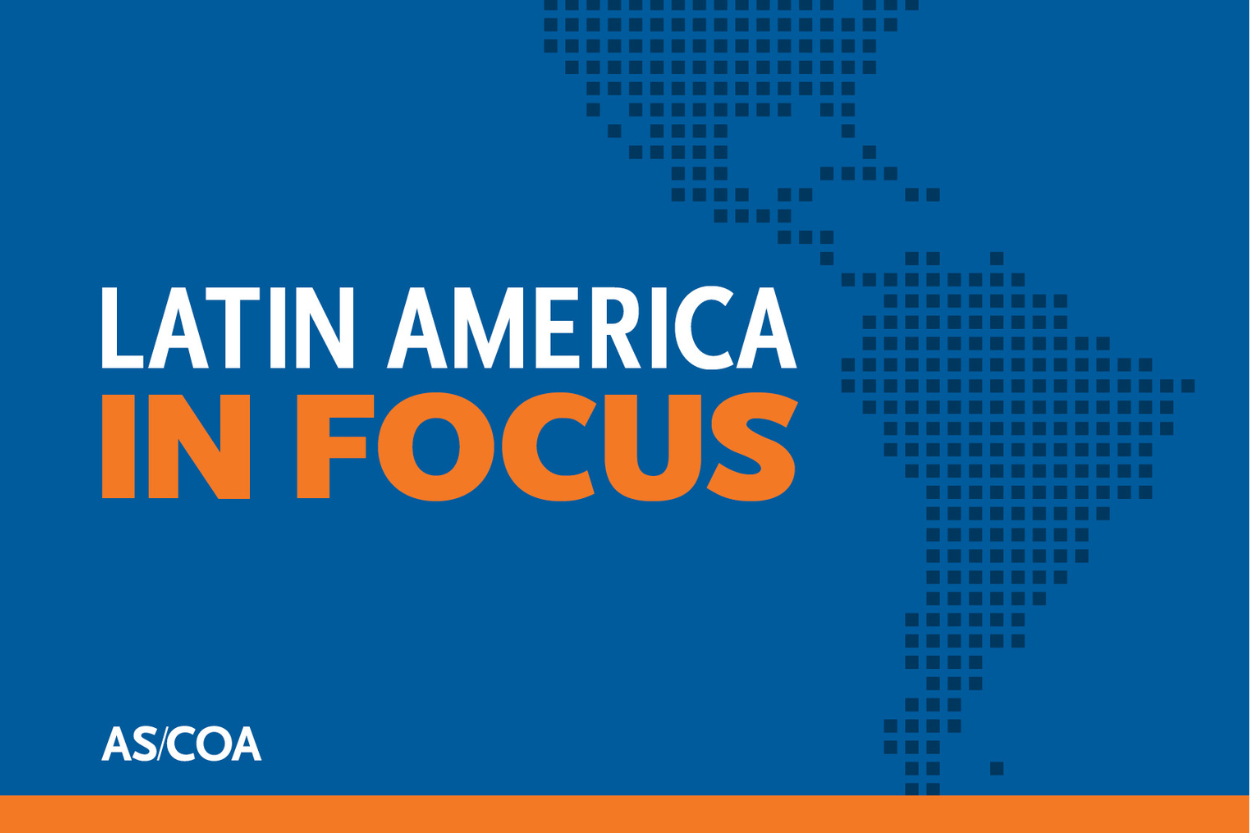U.S. Election Update: Candidates on Foreign Aid
U.S. Election Update: Candidates on Foreign Aid
What are the candidates saying about issues that affect the Americas? In the first installment of its U.S. Election Update series, AS/COA looks at candidate positions on foreign aid, including proposals for boosting democracy, alleviating poverty and disease, and increasing access to education in the developing world.
Primary Update
Early primary contests in Iowa, New Hampshire, Wyoming (R), Michigan, Maine (Republican Party only [R]), Florida, and South Carolina narrowed the candidate field. But following the 24-state vote on Super Tuesday (February 5, 2008), only Hillary Clinton, Barack Obama, and Mike Gravel remain in the Democratic race, while John McCain, Mike Huckabee, and Ron Paul round out the Republican field. The next primaries or caucuses will be held on February 9 (Kansas-R, Louisiana, Nebraska-D, and Washington), February 10 (Maine-D), and February 12 (District of Columbia, Maryland, and Virginia). Upcoming polls will be critical, not only in consolidating convention seats, but also in gauging the national political mood—14.6 million Democrats headed to the polls on Super Tuesday, outpacing Republican foot-traffic, which reached only 9 million.<span style="\"color:" black;\"="">
On Super Tuesday, Democratic Senators Clinton and Obama struck a delegate parity that is indicative of a horse race to the finish. According to RealClearPolitics.com (which reports delegate counts from the Associated Press, Washington Post, CBS News, and its own tallies), Senator Clinton won 1,060 delegates and Obama secured 981; The New York Times, which does not count unpledged delegates or “superdelegates,” reported lower tallies of 892 and 716 delegates, respectively. In the Republican race, Senator McCain swept the field, taking 720 delegates of the total 2,380 convention seats, reports Real Clear Politics. Former Massachusetts Governor Mitt Romney, who dropped out of the race on February 7, won 279 delegates and former Arkansas Governor Mike Huckabee, 197.
Election Update: Presidential Candidates on Foreign Aid*
Presidential candidates of both parties have put forward proposals that favor an invigorated, transparent, and engaged foreign policy, with foreign aid initiatives aimed at building democratic societies, alleviating poverty and disease, and increasing access to education in the developing world. The lone exception is Republican contender Congressman Ron Paul, who supports a non-interventionist foreign policy and the elimination of foreign aid to all nations.
The role of foreign assistance envisioned by Senator Obama is one that will strengthen “the pillars of a just society” by helping to build “accountable institutions that deliver service and opportunity” in countries threatened by conflict and poverty. Arguing that weak states and poor societies are ideal breeding grounds for terrorism and disease, Obama frames the issue of foreign aid as a national security interest that requires a dramatic and multinational approach to alleviating global poverty. To this end, Obama proposes doubling the United States’ annual investment in foreign assistance to $50 billion by 2012, improving on a 20-year trend that he argues has merely kept pace with inflation. Importantly, Obama emphasizes that trade deals, debt relief and foreign aid cannot represent “blank checks” and that assistance must be coupled with a call to reform corruption in recipient countries, “not in the spirit of a patron but in the spirit of a partner.” Moreover, Obama cites the important role of foreign aid in combating AIDS in the developing world. Pledging new funding for such initiatives, he proposes a $2 billion Global Education Fund aimed at eliminating the global education deficit, arguing that “we cannot hope to shape a world where opportunity outweighs danger unless we ensure that every child everywhere is taught to build and not destroy.”
In similar fashion, Senator Clinton makes education the linchpin of her foreign aid policy, maintaining that “education is the foundation of economic opportunity and should lie at the heart of
One of the few presidential contenders to directly address foreign aid in the context of U.S.-Latin America affairs,
Senator McCain also addresses
Not focusing on Latin America, former Governor Huckabee frames his views on foreign aid in the context of
*All source content and quotations drawn from candidates’ pieces in Foreign Affairs as well as a June 20, 2007, speech at the Florida Association of Broadcasters. Ron Paul outlines his policy on foreign assistance on his website and in an interview with the Muckracker Report.







